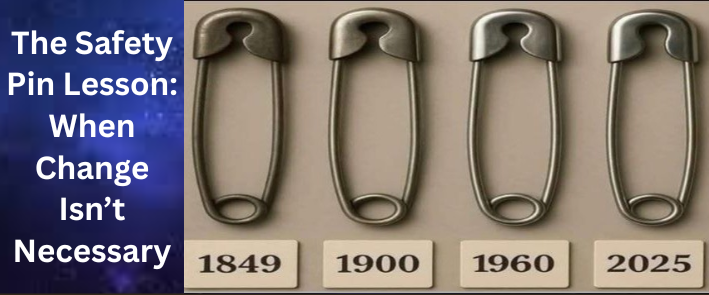.png)
.png)
.png)
Basic Human Aspiration is to be Happy & Prosperous, and it is continuous. Human Being is the coexistence of Mind (Self) and Body, and both go hand in hand. However, both types of needs have to be understood separately and to be fulfilled separately....
Read More Details
The humble safety pin, unchanged for over 175 years, whispers a deeper truth about the nature of change and innovation. In a world consumed by the desire to disrupt, reinvent, and transform, this small but mighty object offers timeless wisdom:...
Read More Details.png)
“The whole is more than the sum of its parts.” - Aristotle We are caught in the window of the mind, the mind acts like a window for single universal consciousness but appears different because of the individuality. To make it clear, we are...
Read More Details.png)
What do you mean by recreate yourself? You can rise up from anything. You can completely recreate yourself. If you are ready for change but not sure how to create it. Here is the formula CARE, simple steps to recreate...
Read More Details